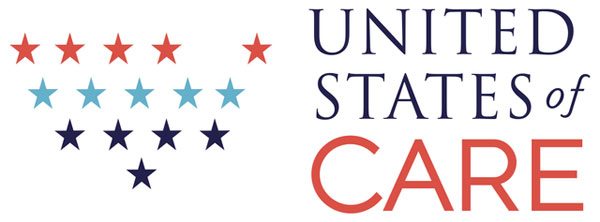
February 20, 2018; USA Today
Despite failing to dismantle the Affordable Care Act in the early months of his administration, the president and his GOP allies in Congress continue to attack the law from as many directions as possible. Those efforts to undermine (rather than strengthen) expanded coverage have spawned several new efforts to find a path forward toward universal access to affordable, quality care.
In early February, Andy Slavitt, the acting administrator for the Centers for Medicare and Medicaid Services during the final years of the Obama administration, announced the launch of a new nonprofit, the United States of Care. Slavitt has gathered together bipartisan leaders from the private and public sectors to help drive a multi-stakeholder conversation, inclusive of the voices of Americans from cities and towns all across the country, that has as its ultimate goal consensus-driven policy solutions.
United States of Care is not committed to any particular policy solution, but rather will support ideas that satisfy three core principles:
- Affordable Source of Care: Every American should have an affordable, regular source of care for themselves and their families.
- Protection from Financial Devastation: All Americans should be protected from financial devastation because of illness or injury.
- Political and Economic Viability: Policies to achieve these aims must be fiscally responsible and win the political support needed to ensure long-term stability.
In a commentary in USA Today, Slavitt explains that he spent much of last year traveling the country and talking to Americans about what they want from their health care system.
Whether they are Democrats, Republicans, independents, or none of the above, no Americans want to live in fear that a job change, a prior illness, the cost of their medication, the generosity of their insurance company or who wins the next elections will determine whether they have their access to affordable health care.
Slavitt believes we can find viable, bipartisan solutions through a state-based strategy. United States of Care will be working with state leaders who want to expand access to quality care in their states by harnessing public opinion to support change, providing resources and expertise to support policy initiatives, and developing new ideas. In the long run, United States of Care hopes to develop lasting solutions that work for all Americans, regardless of where they live, their employment status, or their income.
Sign up for our free newsletters
Subscribe to NPQ's newsletters to have our top stories delivered directly to your inbox.
By signing up, you agree to our privacy policy and terms of use, and to receive messages from NPQ and our partners.
February also saw the launch of a national campaign by the Right Care Alliance (RCA) to reduce the price of life-saving insulin. A coalition of clinicians and patients, RCA seeks to hold health care organizations accountable to the communities they serve.
“The Right Care Alliance is calling for an end to this extortionist and shameful price-jacking,” says RCA co-chair Dr. Vikas Saini in a press release. “No one should die because they can’t afford their insulin, especially when the CEO of Eli Lilly is making more than $16 million per year.”
Between 1.5 and 3 million Americans with Type 1 diabetes depend on insulin to stay alive. Another 4 million, with Type 2 diabetes, also use insulin. Yet three pharmaceutical companies—Eli Lilly, Novo Nordisk, and Sanofi—control the insulin market, demanding higher and higher prices.
The price of insulin has tripled over the last ten years, according to RCA. It now costs a Type 1 diabetic an average of $1000 per month for insulin and supplies. RCA notes that a search of GoFundMe pages turns up over 6000 results for people looking for financial support to buy insulin. Dr. Saini explains in a video that diabetic patients, like 26-year-old Alec Raeshawn Smith, are dying from rationing their insulin.
RCA is holding a series of events to build public support for their campaign, beginning with a February 27 live Facebook panel of patients and doctors discussing the impact of insulin price gouging. RCA hopes to use the insulin campaign to drive real solutions to out-of-control pharmaceutical pricing and the crisis of affordability that puts healthcare out of reach for many Americans.
United States of Care and RCA are playing the long game, seeking new solutions to our troubled health care system. But with the mid-term elections around the corner, two advocacy groups, Protect Our Care and Save My Care, are joining together to target candidates who have attacked the Affordable Care Act. They have made a six-figure TV and digital ad buy in seven states, including Alaska, Arizona, Colorado, Maine, Nevada, Ohio, and Tennessee.
The question remains: Can the Affordable Care Act, now mired in partisan controversy, serve as an effective vehicle for expanding access to care? Or, is it time to move on to new strategies that bring down costs and ensure universal access to high-quality, equitable, and compassionate care?—Karen Kahn













